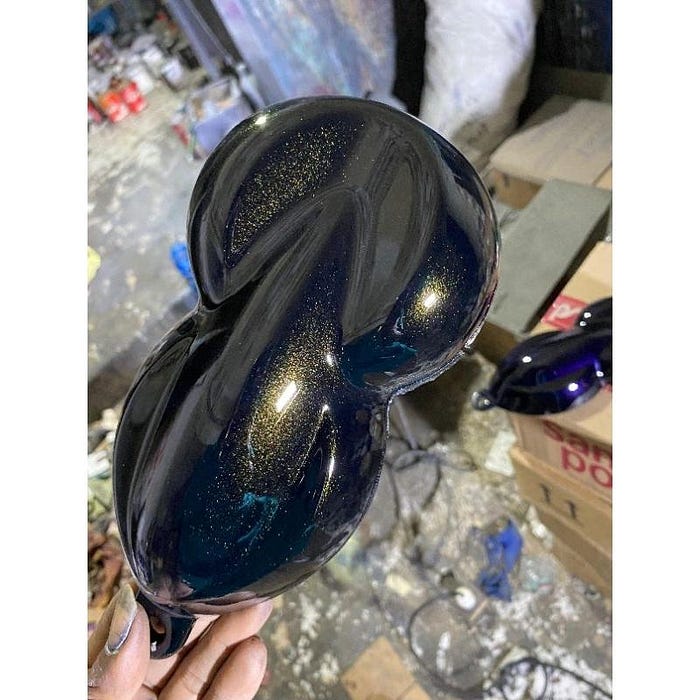Perhaps the most famous early American itinerant painter was the Quaker pastor, Edward Hicks.
Hicks was born in 1780 to Anglican parents, but his mother’s early death resulted in him being raised in a Quaker family.
 |
| An earlier iteration shows the influence of decorative painting on Hicks' canvas work. We call him 'primitive' but his interest in design over realism actually seems very modern in retrospect. |
At the age of 13, Hicks was apprenticed to a coach-making firm, where he learned the craft of decorative painting. He stayed there for seven years before moving on as a journeyman coach and house painter. He was accepted into the Society of Friends in 1803 and married a fellow Quaker that same year.
By 1813, Hicks was traveling as an itinerant preacher. Like St. Paul supporting his ministry with tent-making, Hicks supported his ministry with decorative painting. This, unfortunately, annoyed some of his Quaker brethren, who felt that decorative painting was at odds with Quaker principles. He gave up painting in favor of farming, but that decision was a financial disaster.
 |
| This version of The Peaceable Kingdom, from 1829-30, includes Quakers bearing banners. |
Unlike St. Paul, Hicks had a growing family. Necessity forced him to resume decorative painting. He reeled off the first of many copies of The Peaceable Kingdom by 1820. Ironically, most of his canvases were not done for money, but for the edification of friends and family. In his lifetime, he was known as a preacher, and his living came from painting decorative objects.
Hicks painted an astonishing 61 iterations of The Peaceable Kingdom, which illustrates Isaiah 11:6-8:
The wolf will live with the lamb,
the leopard will lie down with the goat,
the calf and the lion and the yearling together;
and a little child will lead them.
The cow will feed with the bear,
their young will lie down together,
and the lion will eat straw like the ox.
The infant will play near the cobra’s den,
and the young child will put its hand into the viper’s nest.
the leopard will lie down with the goat,
the calf and the lion and the yearling together;
and a little child will lead them.
The cow will feed with the bear,
their young will lie down together,
and the lion will eat straw like the ox.
The infant will play near the cobra’s den,
and the young child will put its hand into the viper’s nest.
That he painted it over and over tells us much about his intention, which was to share and teach the Bible. It was a humble aspiration in opposition to his contemporary art scene (which I wrote about in a series of posts starting here).
 |
| The Cornell Farm, 1848. Hicks may not have had the classically-trained artist's ability to render spatial depth in a landscape, but he sure did understand animals. |
Message me if you want information about next year’s workshops.

.jpg)


